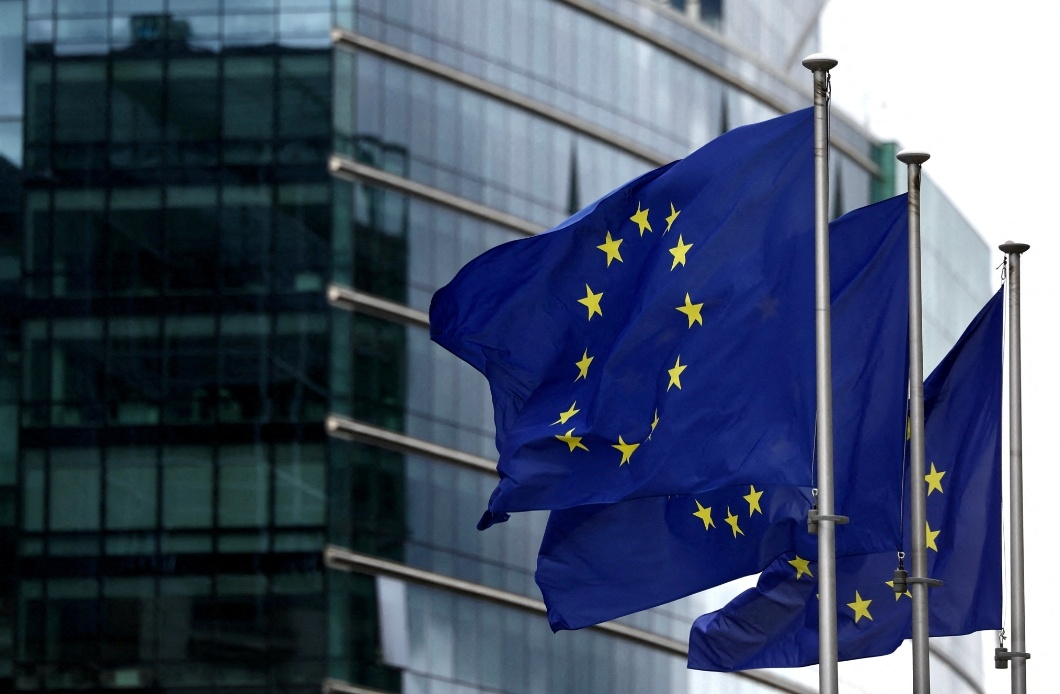
Affected by persistently high inflation, weak external demand, and recurring geopolitical conflicts in the neighborhood, the European economy is at a critical point of "sailing against the current or falling back." Europe's economic development will not only affect its own well-being, but also have an important impact on the world. If the European economy wants to completely get out of the quagmire of "weak recovery", in addition to continuously strengthening the cultivation of "internal skills", it should also avoid the extreme measures that will easily link economy with security and generalize the use of "mixed threats".
The European Commission recently released the 2023 European Autumn Economic Outlook report, as the market had previously expected, the report lowered the economic growth forecast for the EU and the eurozone this year and next, showing that the European economy is still struggling in the mire of "weak recovery". Affected by persistently high inflation, weak external demand, and recurring geopolitical conflicts in the neighborhood, the European economy is at a critical point of "sailing against the current or falling back." Although how to get rid of the "normal fragile" recovery situation has become an unavoidable "must answer", but the entry point of the answer is equally critical. If the introduction of some policies is only to divert the conflict or even to blame others, to avoid the essence of the problem, then Europe's relief is effective.
Growth in the euro zone has struggled this year. The report forecasts GDP growth of 0.6% for both the EU and the euro area in 2023. Considering that only a few months ago, when the European Commission published its summer economic outlook, the European Union and the euro zone economic growth forecast for this year was 0.8 percent, the downgrade further highlights the European economic growth "load ahead." European Commission Vice President Dombrovskis acknowledged in the report that in 2023, the European economy has suffered a series of challenges and lacks effective growth momentum. Although the previously widely watched high inflation factors are expected to recede, the average inflation level in the EU is expected to remain at around 3.5% until at least 2024, which is still above the previous inflation warning red line set by the EU institutions. Under the impact of the protracted Ukraine crisis, market demand in Europe and beyond has been generally weak. The recent outbreak of the Israeli-Palestinian conflict has sown yet another seed of uncertainty in south-eastern Europe.

Looking ahead to 2024, the tone of the Commission's forecasts, though somewhat optimistic, is hardly robust. The report predicts that the EU economy will grow by 1.3% in 2024, and the eurozone economy will grow by 1.2%, both 0.1 percentage points lower than previously expected. The report estimates that the European economy is expected to gradually emerge from the difficulties in 2024 and slowly return to the right track of growth. However, this growth is still challenging, persistent inflationary pressure and the side effects of monetary policy have made it difficult for the European economy to have more room for maneuver, coupled with a series of uncertainties in the external environment, the current forecast growth expectations seem too "moderate", I am afraid it is difficult to overcome a series of internal and external challenges such as this year.
It is worth noting that while the main policy makers of the EU institutions are currently preoccupied with devising various measures to promote economic growth, the overall attractiveness of the European market is already a fact in the major markets of the world. Among the various policy ideas aimed at ensuring the stability of the EU's economic and financial environment and protecting the market rights of EU companies, the European Economic Security Strategy published this year, which claims to strengthen Europe's competitiveness and reshape value chains and supply chains, is one of the most important responses. The strategy document takes stock of the problems facing the European economy, but advocates stronger foreign investment scrutiny and detailed rules, which is a kind of head-on problem, but chooses the wrong place to answer the question, representing the typical conservative ideas in the current EU.
Europe's economic development will not only affect its own well-being, but also have an important impact on the world. In the face of a series of internal and external challenges, such as high inflation, cooling economic activity, and successive geopolitical shocks, if the European economy wants to completely get out of the quaggle of "weak recovery", in addition to continuously strengthening the "internal skills", it should also avoid the extreme measures that will easily link economy with security and use "mixed threats". At present, economic globalization has entered a new stage of development, and the EU should seize the opportunity to strengthen integration and cooperation with an open attitude, so as to complete its own repositioning in the international division of labor. However, the introduction of negative policies with excessive political considerations will only bring more and more "negative energy" to the European economy, causing endless "internal friction" and discouraging external investors. This is not a proper response to Europe's economic woes.

Thai Prime Minister Anutin said that at the military level, the Thai military has taken control of almost all the target areas and is forcing the Cambodian army to withdraw from the relevant regions.
Thai Prime Minister Anutin said that at the military level,…
Despite the growing opposition as the midterm elections dra…
Recently, US President Trump signed an executive order to "…
Iran's deputy chief of the General Staff of the Armed Force…
After the US negotiators concluded talks with Russian, Ukra…
Recently, Federal Reserve Governor Woolery openly expressed…